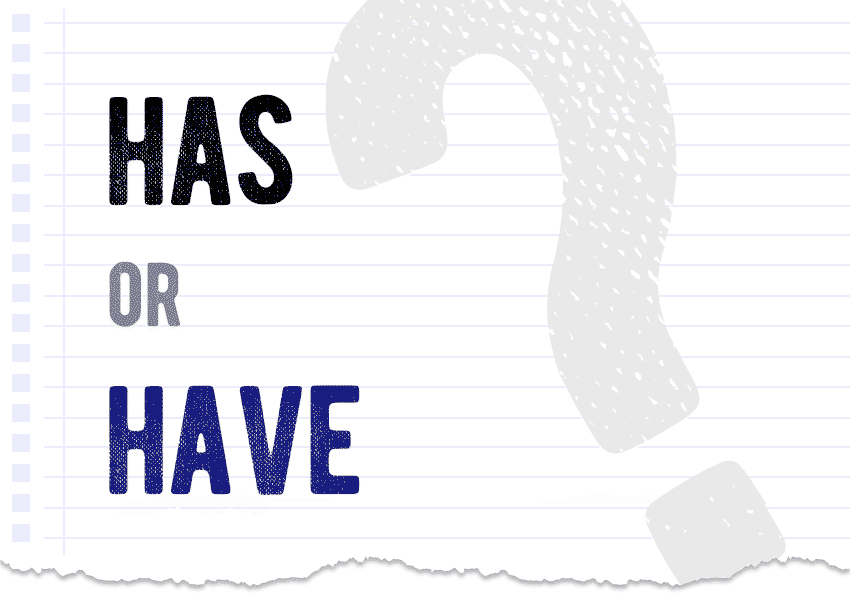Has or have – what is the difference?
As the second most used verb in the English language after be, have is sure to raise questions for many English learners and speakers. When is the form has used and why do we need it? Let’s discuss the difference between has and have.

Has or have? The meaning of have
This verb is used very often in the English language not only because of its most basic meaning, which is “to possess”, “to own”. The other reason is that similarly to the verb be, all the forms of have are used in a variety of grammatical structures, most notably to express the perfect aspect.
The difference between have and has
The two forms are not different in meaning and are, of course, both correct. What is different is their use and the contexts they appear in. The word has is the irregular form of have used for the third person singular (he, she it) in the Present Simple tense, which with regular verbs requires the addition of the ending -s (or -es): she + go becomes “she goes”, it + show is “it shows”, etc.
This also applies to phrases the verb is part of, e.g. the phrase “have to” meaning obligation (3rd person “has to”), as well as the perfect aspect mentioned above. When have is added to a past participle to form the Present Perfect tense (e.g. “they have gone”), has appears in the 3rd person too: e.g. “he has gone”.
Has or have? Other grammatical aspects of have
These two above tenses are where the difference between has and had is the most significant. In the past tenses, this distinction disappears with the form had, which is the same for every grammatical person, including the third one. The word have can appear in a sentence both as an auxiliary and a verb, which may lead to different combinations of the forms next to each other, e.g. “he has had” in the Present Perfect or “she had had” in the Past Perfect (see examples below).
Has or have — example sentences
This word has had a complicated history over the years.
Patricia T. O’Conner – Woe Is I (1996)
Daddy said, just as cheery, “Good idea! Isabella, would you check to see if we have pancake mix?”
Sharon M. Draper – Blended (2018)
Ishtar says she has a lot of connections in Hollywood, so I brought that along. Who am I to refuse an offer like that?
Sarwat Chadda – City of the Plague God (2021)
No, this is for Tab. She has to get some teeth pulled today. She’s leaving at lunchtime.
Rebecca Stead – Goodbye Stranger (2015)


